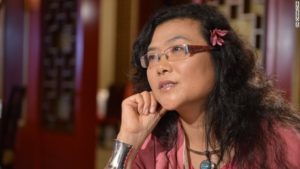
The world looks with awe at China’s economic achievements, but because of its one-child policy, it not only gained fast economic growth but also an aging population that offers an equally devastating income trap for the decades to come, unless it invests more smartly into its people, says China veteran Ian Johnson at the Vietnam Brief.
Ian Johnson:
China getting into the middle income trap is still very much up in the air. It is not yet clear will China become a rich country; per capita income is still on the lower side. It is still a middle-income country. The educational level is not broad enough to support a jump from middle-income to high-income level. China doesn’t have better educated mass population and education is yet poor in the countryside and there are a huge number of people who just have middle school educational level. The government is investing in it but this could be too late too little for China. Scott Rozelle in his survey studies in rural setup about the educational levels concludes that the educational setup hasn’t grown as it should have for China to be a developed country. China has till now ignored to invest heavily in the educational and technical sector and this is hurting China badly. In the modern world with all the sophistication and technological advancement around, China doesn’t have enough numbers to continue and support its economic growth.
The one-child policy has hurt China’s interests in more than one way. The People’s Liberation Army (PLA) is also at the receiving end of this policy. Even though the declining population does not affect PLA much as PLA has been on a program for decades to get smaller, more professional and higher tech. It (PLA) is more focused on high end weapon systems and have lower response time as it won’t be fighting a war involving a million soldiers and in that regard the population doesn’t matter much. The challenge however is that there is still the idea of PLA being a mass army where the pay is not very good, educational level is not very good, a typical recruit is a rural person with low school education, they have college graduates but not enough who can operate the modern weapon systems.
The decreasing population due to state policies poses a high risk for Chinese progress. It has already slowed down and have sounded alarm bells in the system. The skewed sex ratio is yet another problem which has led to increase in human trafficking and increase in crimes. China’s worries are real and they are shifting from one-child policy to three-child policy, however the relief is yet very far off.
Ian Johnson is a speaker at the China Speakers Bureau. Do you need him at your (online) meeting or conference? Do get in touch or fill in our speakers’ request form.
Are you looking for more political experts at the China Speakers Bureau? Do check out this list.




